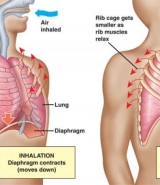
Everybody loves Apple products. They’re slowly but surely taking over the world. A bit like Tescos. And there’s a good reason for that. Number one, they’re perceived as ‘cool’ – so people buy their stuff regardless of cost (known in the trade as the ‘Starbucks Factor’). Number two, they’re pretty good quality. Number three, they offer lots of nice little treats to their customers to make them feel special – like free training workshops. I’m not a massive Apple/Steve Jobs fan – I think he was a bit of a narcissistic maniac – but he had some good ideas.
Anyway, cutting a long story short, I was recently on a free training ‘workshop’ in an Apple Store local to me with four other people. It was a training course specific to a new spreadsheet application. I was hoping for 90 minutes of tuition so I could use it to cost and organise scuba training sessions. However, one of the people on the course was a lady in her late 40’s/early 50’s who we’ll call Barbara who, apparently, had just been thawed out from the ice-age and was being introduced to a computer for the first time. This held up the course somewhat. I’m not a computer expert, but I was hoping learn how to use formulas, insert rows and columns, do some conditional formatting etc. What I got was 90 mins of the tutor being stopped every 30 seconds while Barbara (who signaled her confusion by pulling face like she was messing her pants) was attended to and shown complicated stuff like ‘what a cursor is’ and ‘how to move the cursor’, before moving onto top-level stuff like ‘opening a document’.
Now, I’m not being funny but…you’d think Barbara would have refreshed herself on the bare essentials before turning up to what was, effectively, the next stage – mastering a specific application. Her lack of basic knowledge and skills compromised not only her morning, but the morning of the other three people on the course – who were left twiddling their thumbs and updating their Facebook status while Barbara had 1-2-1 tuition. And this brings us to, in a roundabout sort of way, the next step after passing your Open Water Course.
So, you’ve just passed your Open Water Diver course? Congratulations! It’s quite an achievement. I still remember vividly passing my Open Water Diver course and I was really, really pleased with myself. And rightly so. I did my qualifying dives in a quarry. In November. In the snow. It was almost an endurance test interspersed with cups of tea. But, no matter where you do your training there’s lots to take on board. You’ve learned over 20 core skills under supervision and, hopefully, learned to plan your dives and make safe descents and ascents.
So what’s next? Well, the Open Water Diver course is the scuba diving equivalent of passing your driving test. You’ve learned some essential skills. You’ve learned some essential ‘fire drills’ in case it all goes pear-shaped, such as the alternate air source and CESA skills. Now it’s time to get some miles on the clock. You’re solid, but you’re not quite James Bond just yet.
Now, chances are, having passed, you fall into one of two or three categories:
- Super-confident and think you’re a diving god. In your head you can imagine yourself as a professional Divemaster already.
- Happy with what you’ve achieved and looking to get some more experience and possibly take your next step. You realise there’s lots to learn and wouldn’t consider going off on your own diving with a buddy of equal experience quite yet.
- Pleased just to have made it through the Open Water training but was slightly terrified and will only dive on holiday, thanks.
In reality, all three of these newly qualified divers would benefit from more experience and training. As I said in my last column, passing your basic training and then getting the ocean to play with is much like passing your driving test and being given the keys to a Aston Martin. Diver 1 perhaps needs to take his foot off the gas and gather some experience to go with his enthusiasm. Diver 2 is the majority of divers who pass through training courses. Diver 3 is lacking confidence but has potential – after all, if they hadn’t met the course requirements they wouldn’t have passed.
If you’re Diver 3 and (as you perceive it) passed by the skin of your teeth but still feel a little edgy about some of the skills – that’s fine. Many people do. Does the thought of removing and replacing your mask make you nervous? No problem. You can do it. In fact, to pass your Open Water course you will have removed and replaced your mask beneath the surface a minimum of three times. All it means is you need practice. Get in the pool with your local school or club. Sit at the bottom of the pool and remove, replace and clear your mask over and over and over again until it’s as second nature as taking a shoe off and putting it back on again. Then, and only then, you’re ready to move on. This applies to all the core skills.
But, if you’re Diver 1 or 2, you’re ready for the next stage; the Advanced Open Water course. You’ll learn some key skills under supervision that will stand you in good stead as you start to do more challenging dives, deeper dives and (deep breath!) maybe diving without a dive guide or instructor in a buddy pair. So, instead of following your Instructor’s fin tips, doing it for yourself.
So what is the core of the Advanced Open Water course? Well, first of all, navigation. On the Open Water diver course you learned simple out/back reciprocal headings so that you could find your way home. But, how often do you do a straight out/back course in the real world? This will have you measuring time and distance and add more realistic and typical navigational skills – such as navigating a square.
And, of course, the second core skill is going deeper. Up to 30m deep in fact. Diver 1 won’t even see an issue with that. He wasn’t scared at 18m – why would 30m concern him? Well, there’s slightly more to consider than that – temperature, light, air consumption, NDL limits, safety stops… and we’ll get to all that in the next installment. Diver 2 would benefit from the reassurance and supervision of the instructor and divemaster being with them.
After those two core skill dives there are options which we’ll look at. Go for it. Do it. You’ll learn a lot with the right instructor and be a better and safer diver in the water after it. I promise.
BUT….please don’t be a Barbara. When you turn up for your Advanced Open Water course we’re presuming that you haven’t discarded all the knowledge from your Open Water course. So, if you’ve forgotten, refresh yourself on equipment assembly, buddy checks, buoyancy, compass and RDP use before you rock up. Do a refresher or scuba-tune-up beforehand. The key is in the name “Advanced Open Water Course” as opposed to “Open Water Refresher”. You’ll get more out of the course and won’t compromise everyone else’s course too. If you don’t I’ll beat you around the head with my snorkel. That’s also a promise.
Click here to read “The Next Step, Part 2. Advanced Open Water Skills”
Safe diving.
The Scuba Monkey
 Destinations
Destinations








Your Comments
No comment yet on this page, your thoughts are welcome!
Have you been travelling or scuba diving here? Rate it!(1 votes, 5.00/5)